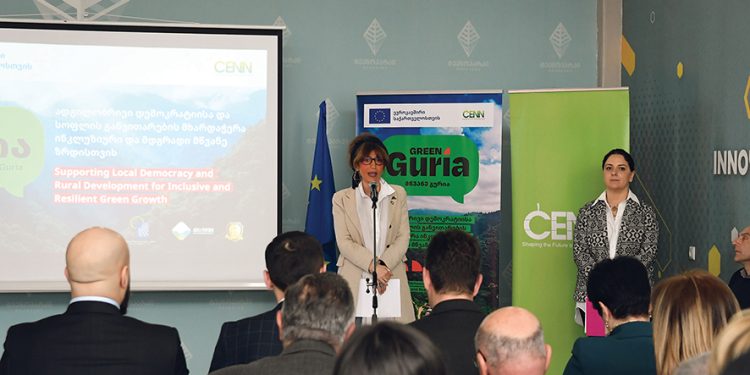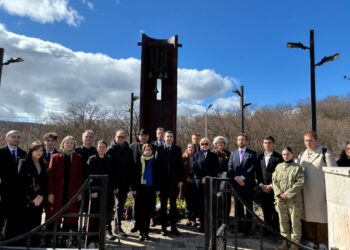A new EU-funded project “Green Guria – Supporting Local Democracy and Rural Development for Inclusive and Resilient Green Growth” was launched in Guria by CENN, Young Pedagogues’ Union, Institute of Democracy and Keda Local Action Group (LAG). The project opening event took place in Ozurgeti Techno Park and was attended by representatives of local authorities and civil society organizations and different members of the local community. The project aims to reduce poverty and improve the economic and social environment and living conditions of vulnerable rural communities in the Guria region.
“The European Union has been financing the rural development program in Georgia for 10 years,” Ketevan Khutsishvili, Program Manager for Rural Development, Civil Protection and Crisis Management of the Delegation of the European Union to Georgia, noted. “Within the framework of this program, the main financing of the EU is in the state budget of Georgia, followed by the financing allocated to international and non-governmental organizations. It is within the framework of this financing that we are pleased that a rural development program will be implemented in all three municipalities of Guria over the next three years, which is aimed at identifying needs based on rural priorities and allocating financial resources for these needs, which will be provided by the joint work of the local population, non-governmental sector, business and local government. We very much hope that the involvement of local communities will contribute to a better future in the Guria region.”
Guests attending the launch were introduced to the project’s goals and designed activities to strengthen and support the Guria region’s rural and economic development. The event participants also received information about the public-private sector cooperation opportunities planned within the project.
Over three years, the project will operate in Guria’s Ozurgeti, Lanchkhuti, and Chokhatauri municipalities. The project will establish Local Action Groups (LAGs) in these municipalities and develop local development strategies that prioritize the needs of gender, youth, and vulnerable groups. The project will also promote sustainable practices and diversification of the local economy, and empower women, youth, and civic organizations and communities.
The project plans to carry out the following activities:
• Establishing and building the Ozurgeti, Lanchkhuti and Chokhatauri LAGs based on the EU “Leader” principles.
• Participatory development of gender, child and vulnerable group (VG)-sensitive Local development strategies in the Ozurgeti, Lanchkhuti and Chokhatauri municipalities, based on RBA.
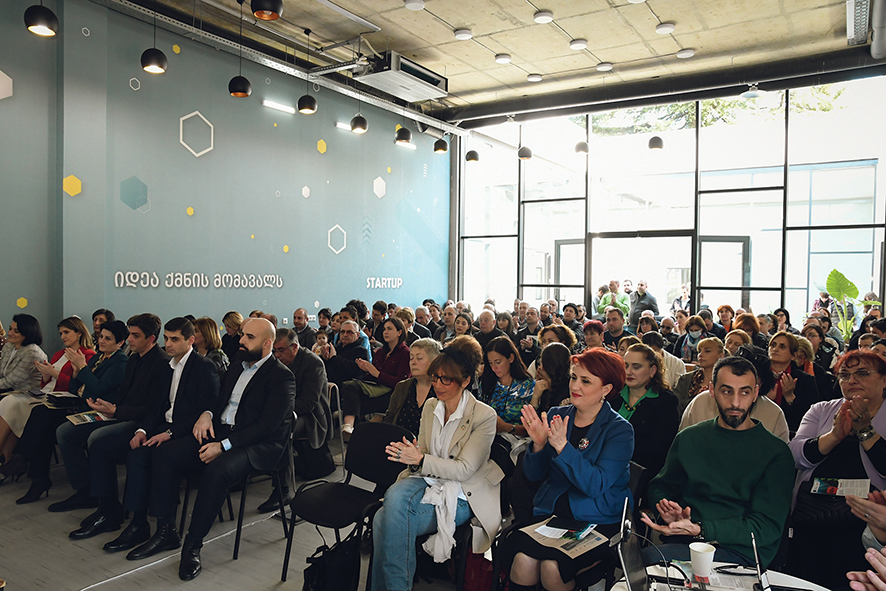
• Greening and diversifying the rural economy via the implementation of innovative and replicable projects.
• Promoting civic participation and empowering women, youth and local CSOs to defend the rights of their constituencies and advocate for the provision of quality public services for VGs and fair and sustainable post-COVID recovery.
The project, set to last three years, is being implemented as part of the European Neighborhood Program for Rural and Agricultural Development ENPARD IV.
Who will benefit?
Target and beneficiary groups of the project are the local communities of Ozurgeti, Lanchkhuti and Chokhatauri municipalities, local authorities, regional authorities, farmers, enterprises, tourist service providers, educational institutions and youth, tourists and visitors, and media organizations at the local and regional levels.
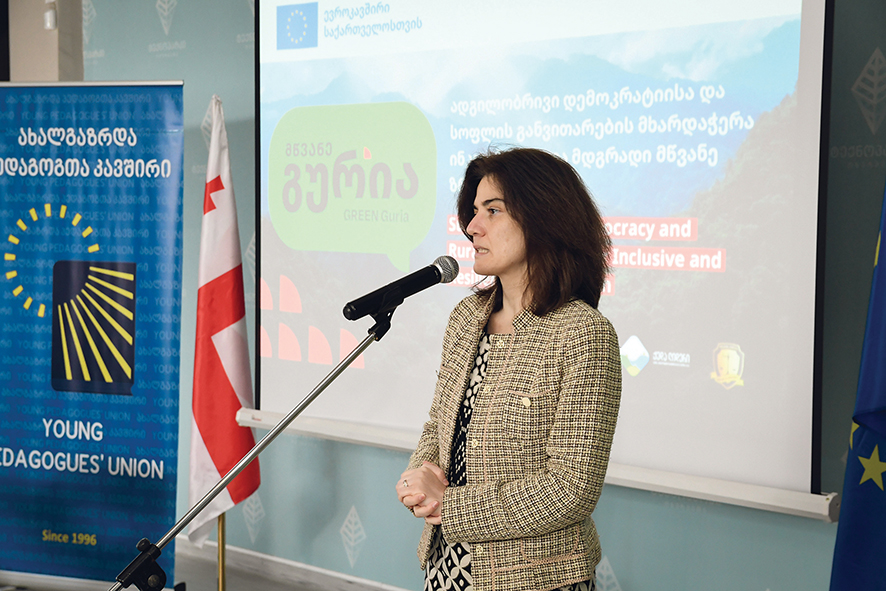
What will the results be in three years’ time?
• The project will improve participatory bottom-up mechanisms tfor the community’s development. 3 LAGS will be established – one each in Ozurgeti, Lanchkhuti and Chokhatauri, with private, public and civic sector representation, with specific focus to encourage equal gender and youth participation.
• The project will develop Local Development Strategies that will be particularly sensitive and responsive to the needs of different genders and youth and will ensure that actions and approaches are environmentally sensitive.
• The project will offer opportunities for rural economic diversification and inclusive green growth through supporting projects that meet local needs and prevent the depopulation of villages These projects will help to create an eco-system by improving (a) the competitiveness of the agricultural practices and forest use; (b) the diversification of local economic activities; and (c) the quality of life in rural areas by increasing access to public services and infrastructure and/or improving the management of natural resources.
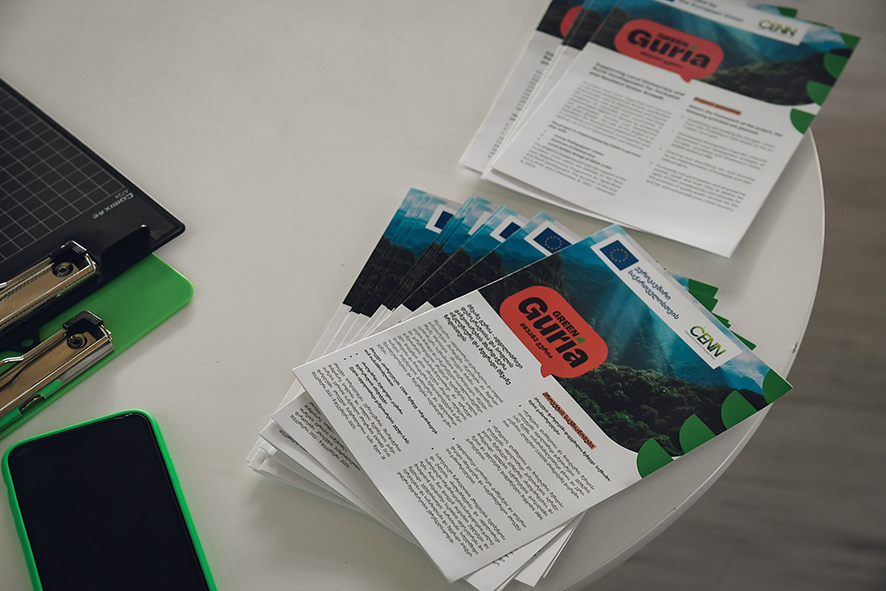
• Civic participation will be improved and accessibility and quality of state public services for particularly disadvantaged, remote and depopulated rural areas by empowering women, youth and civil society, introducing digital and social innovation in rural services, facilitating multi-stakeholder issue-based dialogue, and demonstrating effective civil partnerships between the civil society and local authorities. Local youth and women-led initiatives and advocacy campaigns will be supported that promote EU values, participatory local democracy, gender equality, climate action and green post-COVID recovery.
“I would like to thank the European Union for the assistance provided to Georgia,” Nana Janashia, Executive Director of CENN, said at the launch. “CENN has been involved in the ENPARD program for more than seven years, and the projects implemented within the framework of this program have brought significant development to Georgia’s municipalities. We are glad that, this time, we have the opportunity to start a village development project in Guria. This region has great development potential and the project will work in this regard. We believe that the development of municipalities will be possible through cooperation and involvement with local businesses and civil society.”
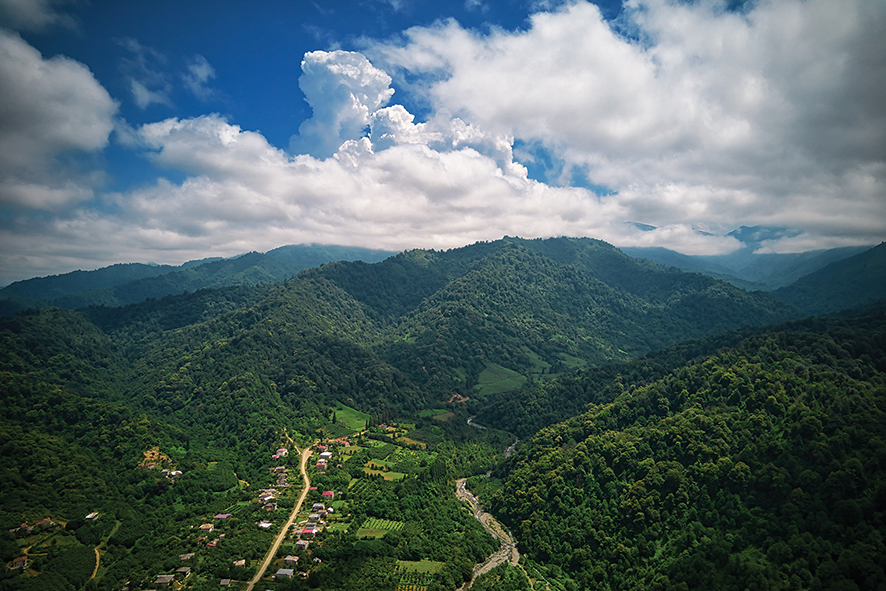
At the launch event, speeches were also given by Ekaterine Zviadadze, Head of the Policy Coordination and Analysis Department, MEPA; Giorgi Urushadze, State Representative, Guria; Giorgi Ghurjumelidze, Vice Mayor of the Ozurgeti Municipality; Maia Kutubidze, Vice Mayor of the Chokhatauri Municipality; and Eka Gujabidze, Vice Mayor of the Lanchkhuti Municipality.
Representatives of the European Union, local self-government and civil society, and local entrepreneurs attended the launch event.
By Katie Ruth Davies

